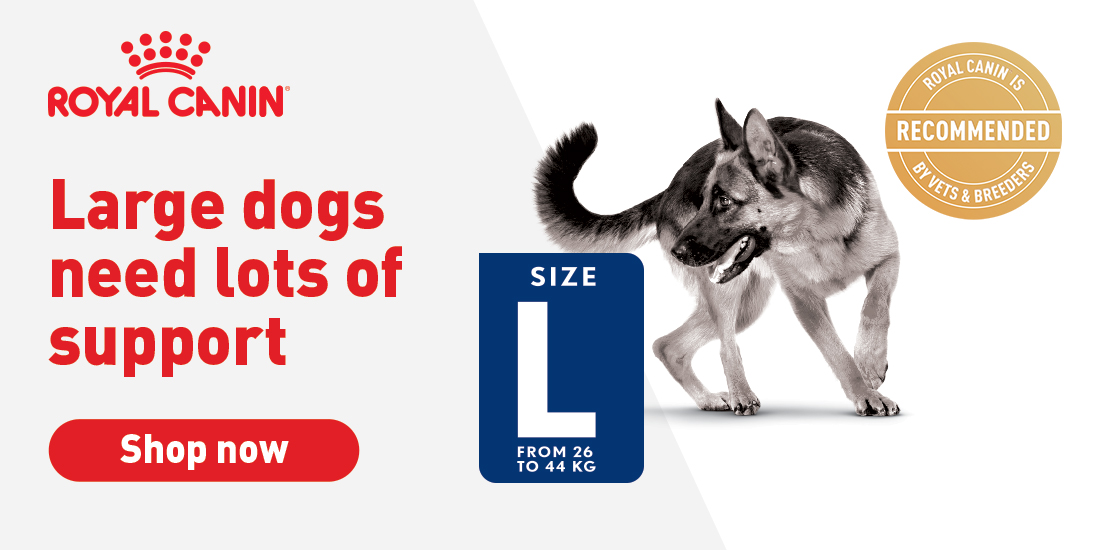Dog Breed
Rhodesian Ridgeback
Friendliness
Exercise Needs
Health Issues
Barking Tendencies
Grooming Needs
Shedding Level
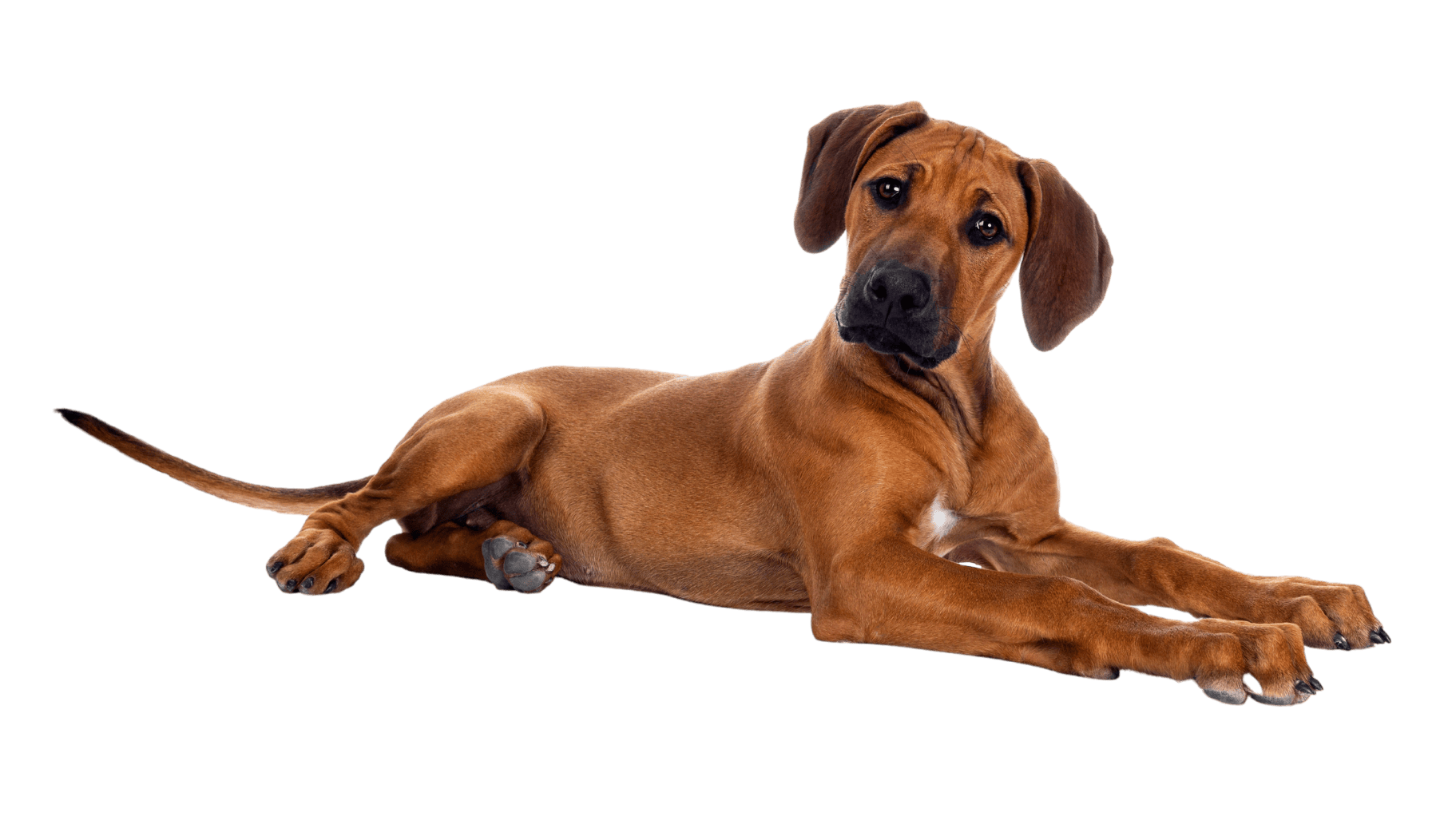

Affectionate athlete
Bred to run, explore, and protect, Rhodesian Ridgebacks are strong, confident dogs with a calm and loyal nature. They form close bonds with their families and enjoy being involved in daily life, often preferring to stay close to their people rather than seeking constant attention.
Independent and intelligent, Ridgebacks do best with confident, consistent owners who can provide structure, exercise, and training. Once their energy is spent, they’re happy to relax at home and enjoy quiet time with their family.
Caring for your Rhodesian Ridgeback
Nutrition
Choosing the right food
Every dog is unique. From small companions to large, active breeds with different nutritional needs. ROYAL CANIN® Size Health Nutrition is designed to support dogs based on their size and life stage, helping maintain overall health, vitality and wellbeing. These formulas use carefully selected protein sources, targeted nutrients and tailored kibble to support digestion, energy levels, and bone and joint health across small, medium and large dogs.
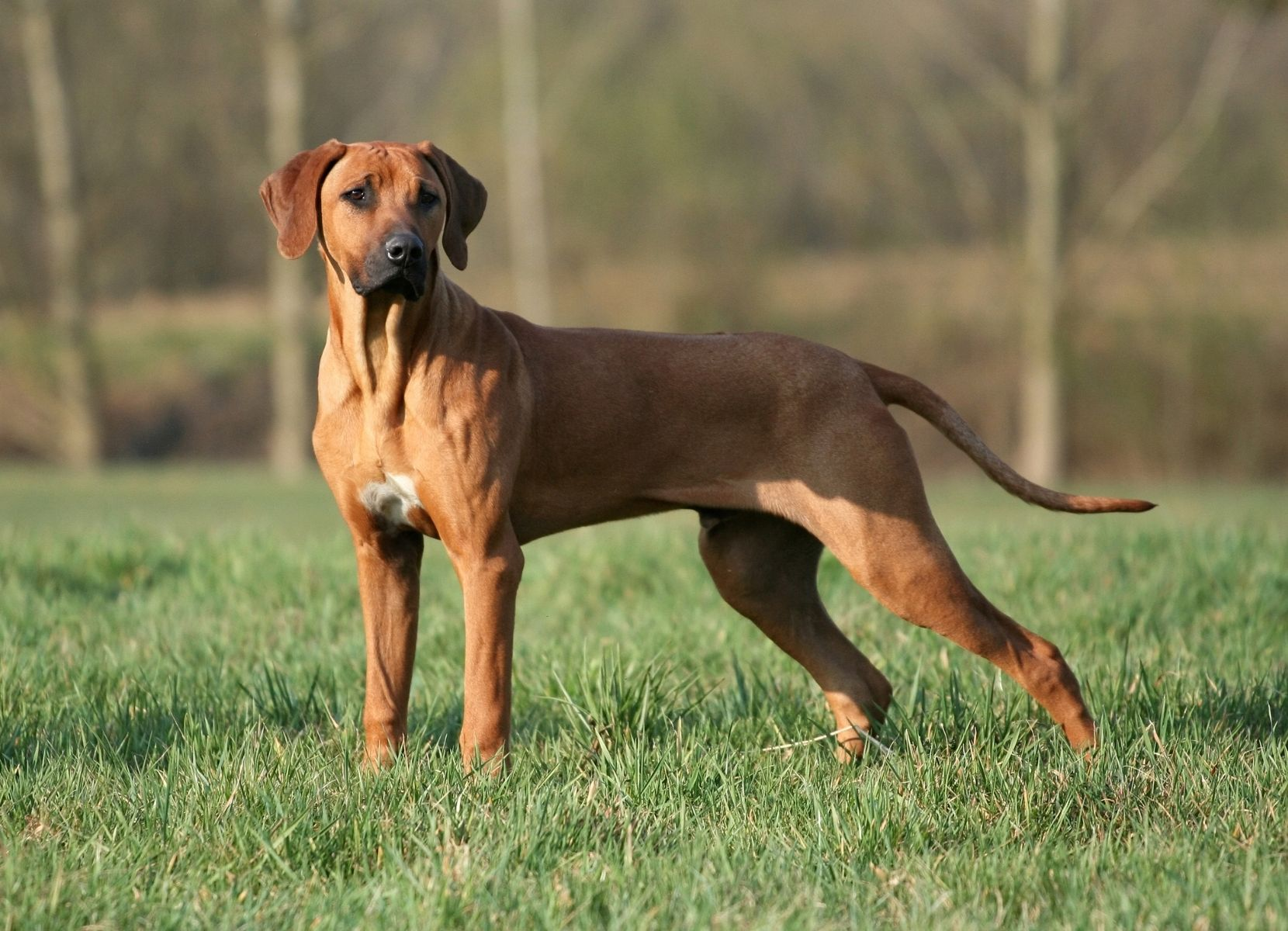
Exercising your dog
Rhodesian Ridgebacks are athletic dogs that need plenty of daily exercise to stay healthy and balanced. As natural runners with high stamina, they thrive when given opportunities to move, explore, and stretch out.
Aim for long walks, hikes, or structured play each day. Ridgebacks enjoy activities like running alongside you or heading out on longer adventures, making them great companions for active households.
Because of their strong prey drive, they should be kept on a lead in open or unfenced areas. Once something catches their attention, they’re likely to take off in pursuit.
Regular exercise helps prevent boredom and supports both physical health and calm behaviour at home.
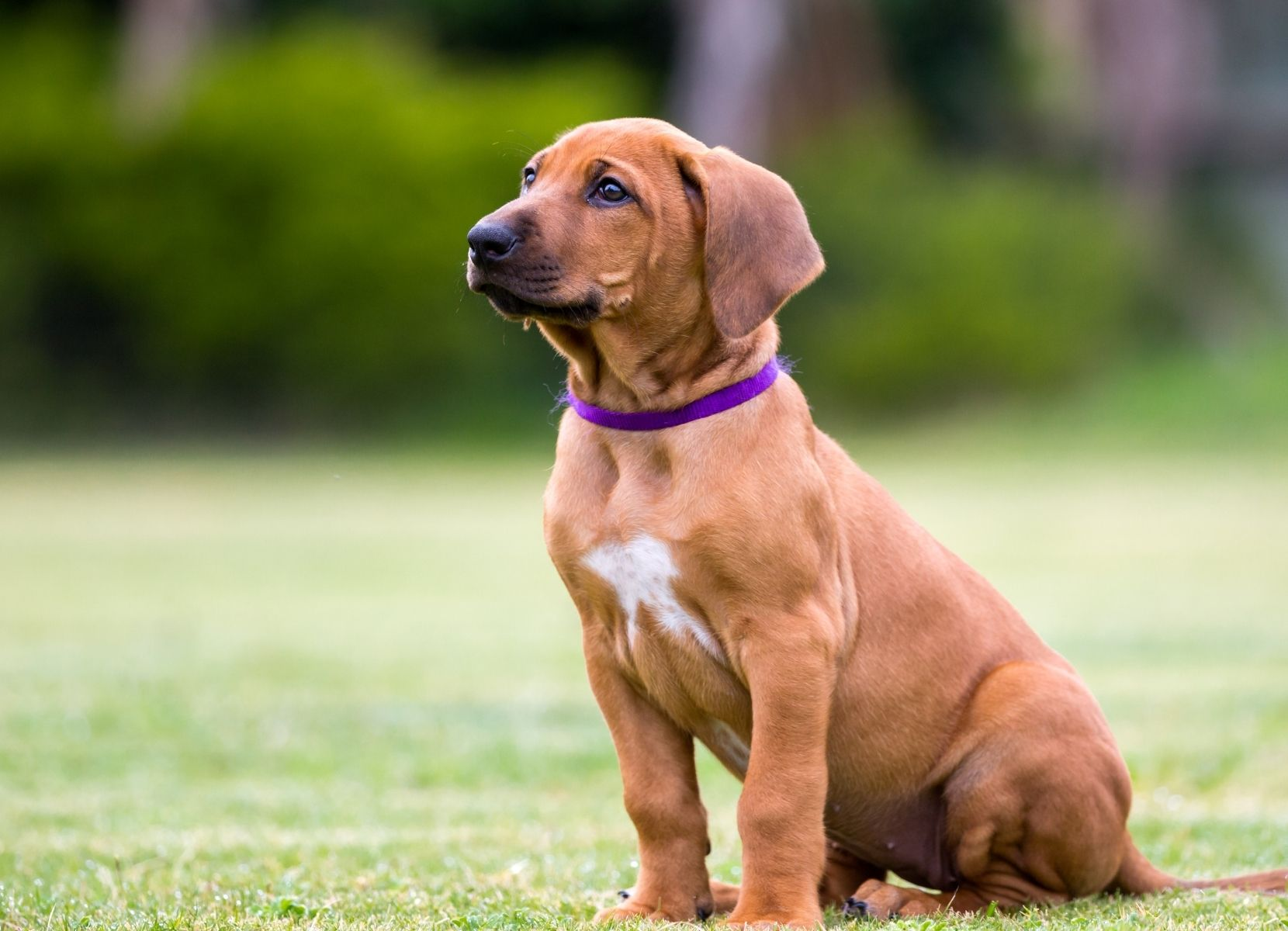
Training your Rhodesian Ridgeback
Rhodesian Ridgebacks are intelligent and independent, which means training requires patience, consistency, and clear boundaries. While they’re capable learners, they’re not a breed that responds well to harsh or repetitive methods.
Training should start early, with a focus on socialisation and basic obedience. Introducing them to different people, environments, and everyday noises helps build confidence and good manners.
Positive reinforcement works best, using rewards, praise, and calm guidance. Ridgebacks respond well when training feels purposeful rather than forced.
Ongoing training helps channel their independence in a positive way and strengthens the bond between dog and owner.
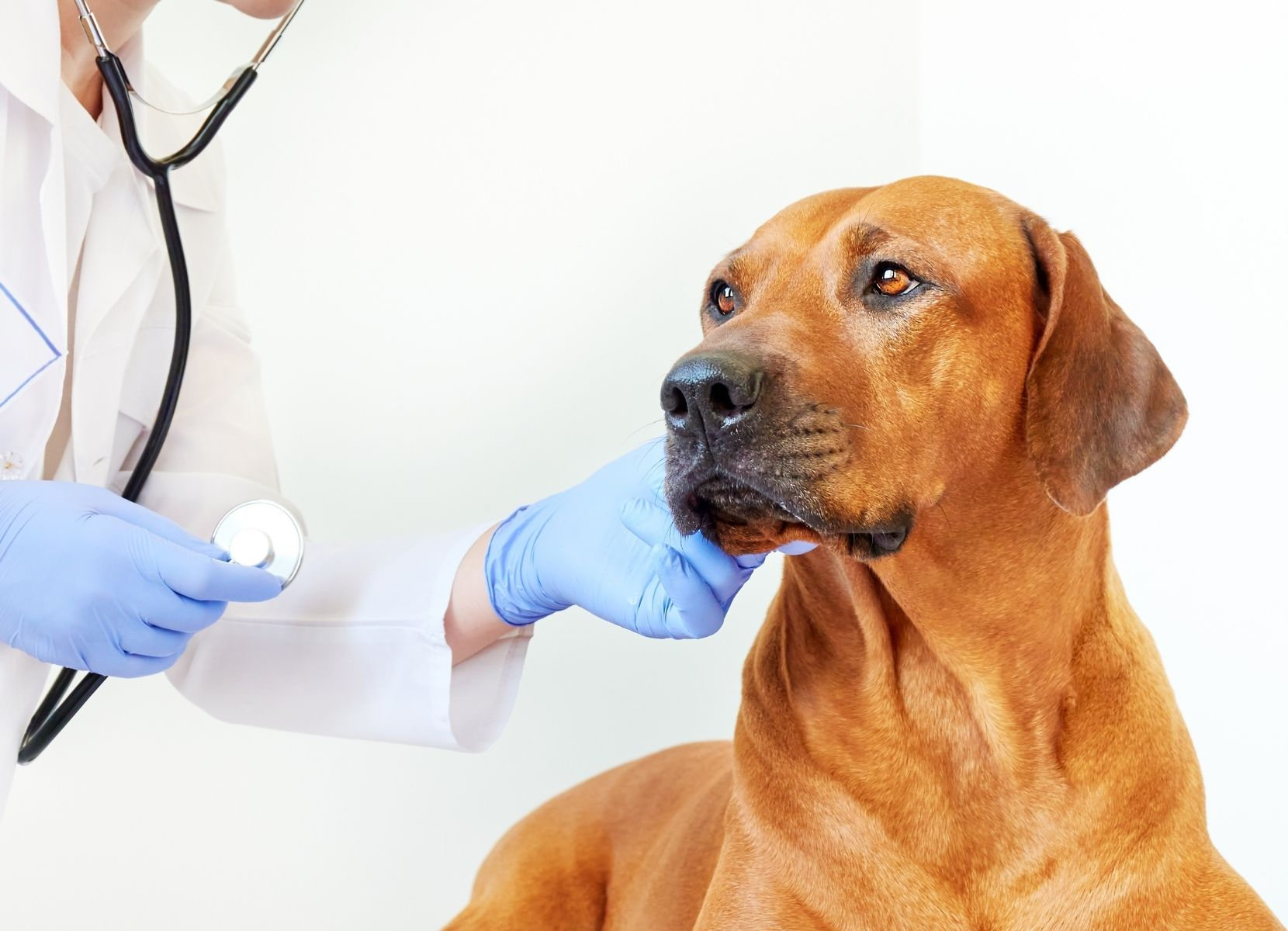
Your dog's health
By recognising health problems in Rhodesian Ridgebacks early you can seek advice and treatment from a veterinarian.
Reduce the risk of health problems by purchasing a puppy from a responsible breeder. Always inspect breeding facilities and breeding dogs, and never buy from a distant online seller.
Health Issues to watch out for:
Food-Induced Atopic Dermatitis
Joint Problems
Dermoid Sinus
Juvenile Myoclonic Epilepsy
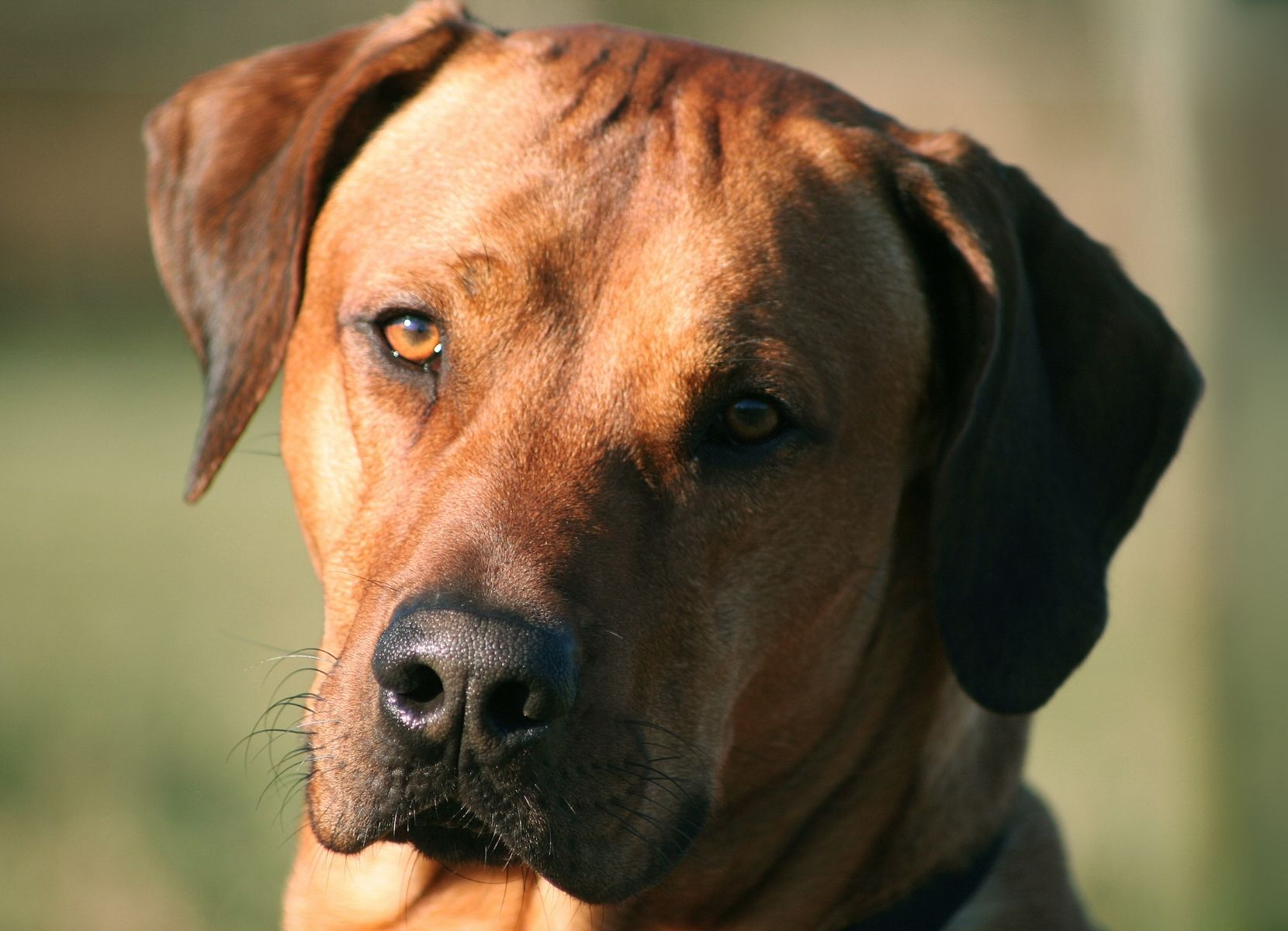
Grooming your dog
With their short, smooth coat, Rhodesian Ridgebacks are relatively low maintenance when it comes to grooming. A quick weekly brush is usually enough to remove loose hair and keep their coat looking healthy.
They don’t require frequent baths and only need one when particularly dirty. In between, a quick wipe-down can help keep them clean.
Regular nail trims are important, as Ridgebacks are active dogs that can be sensitive about having their feet handled. Starting nail care early helps make this easier over time.
Routine ear checks and regular teeth brushing also play an important role in maintaining overall health.
Key characteristics of Rhodesian Ridgebacks
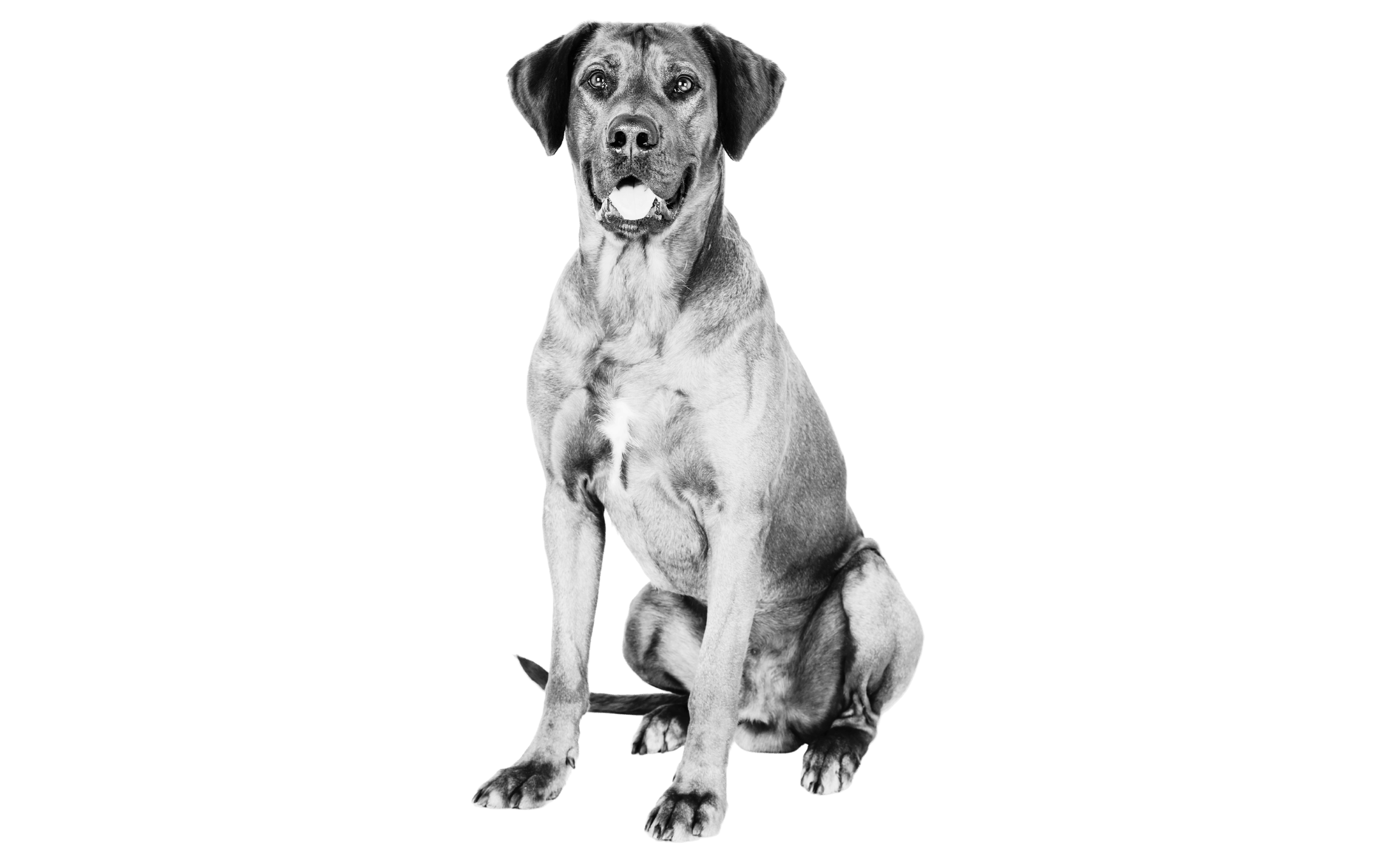
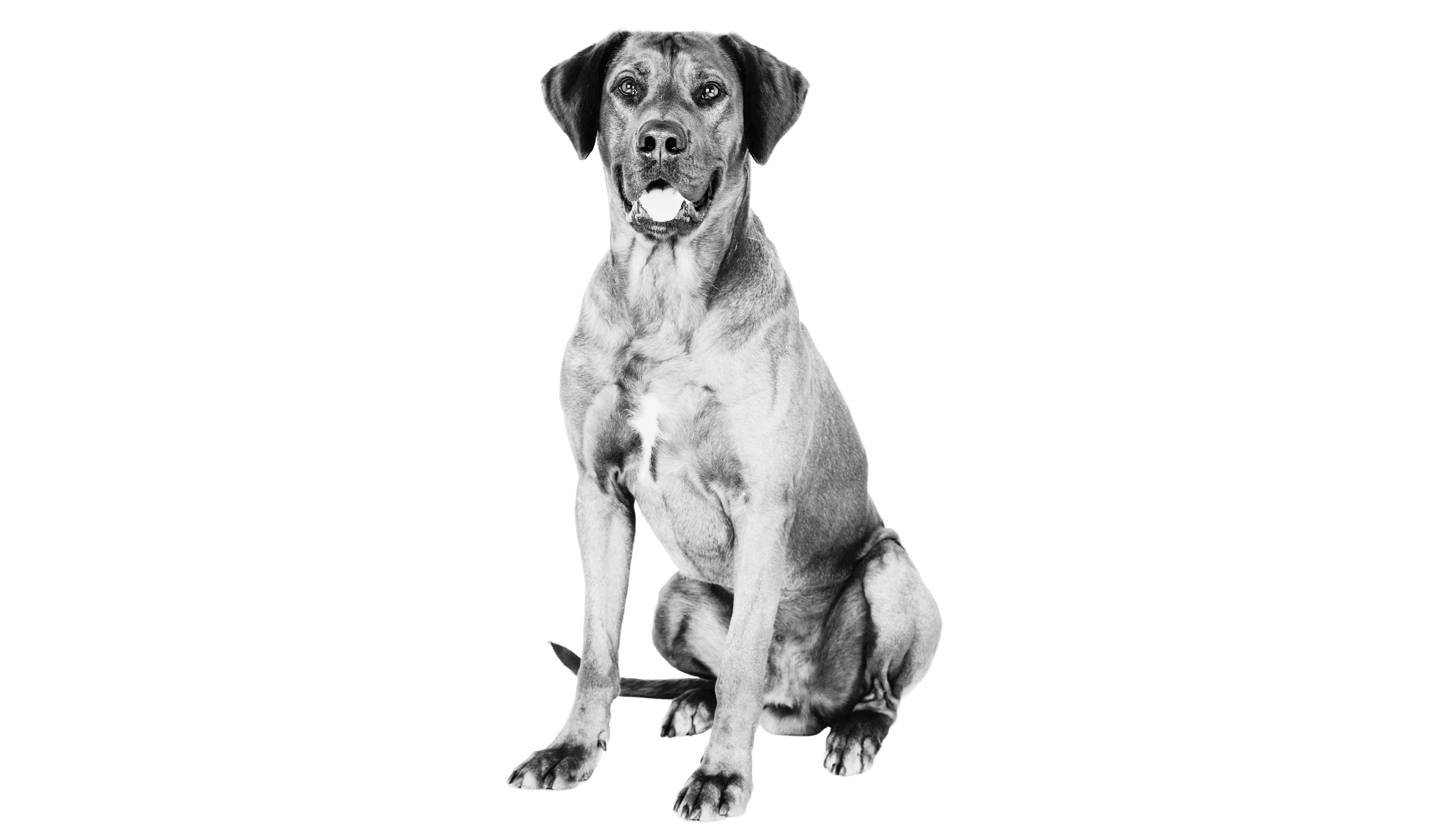
Rhodesian Ridgeback FAQs
Rhodesian Ridgebacks are known for their strength, independence, and deep loyalty to their families. These FAQs cover common questions about living with the breed, from daily care to lifestyle compatibility.
Are Rhodesian Ridgebacks good family dogs?
Rhodesian Ridgebacks can make loyal and affectionate family dogs, particularly in households with older children. They form strong bonds with their people and are protective by nature, but due to their size and strength, supervision around younger children is recommended.
Do Rhodesian Ridgebacks need a lot of exercise?
Yes. Rhodesian Ridgebacks are active, athletic dogs that need daily exercise to stay physically and mentally balanced. Long walks, runs, and outdoor adventures help prevent boredom and support calm behaviour at home.
Do Rhodesian Ridgebacks get along with other pets?
With early socialisation, Rhodesian Ridgebacks can live with other dogs, but their prey drive means caution is needed around smaller animals. Introductions should be slow and supervised.
Can Rhodesian Ridgebacks be left alone during the day?
Ridgebacks are fairly independent but don’t enjoy being left alone for long periods on a regular basis. Without enough exercise and mental stimulation, they may become bored or destructive.
Are Rhodesian Ridgebacks easy to train?
They are intelligent but strong-willed, which means training requires patience and consistency. They respond best to calm, positive reinforcement and clear boundaries rather than harsh or repetitive methods.
With the right training, exercise, and leadership, Rhodesian Ridgebacks can be calm, devoted companions suited to active and experienced households.
